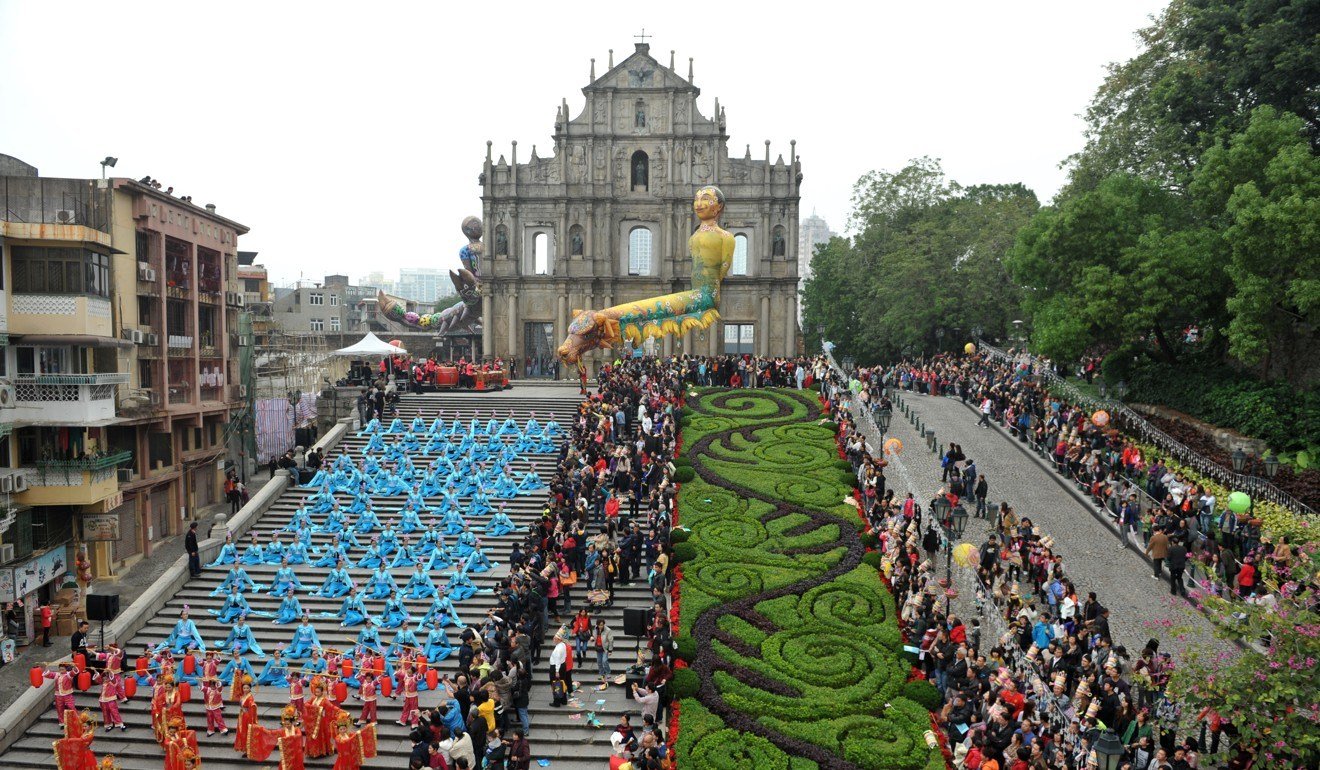Macau Tourism Office Makes Bold Predictions, Non-Gaming Spend Forecasted to Double by 2025
Posted on: October 1, 2017, 05:00h.
Last updated on: October 1, 2017, 10:09h.
If the Macau tourism office is concerned with how ongoing regulations and oversight from China might impact its economy, the city agency certainly isn’t showing such fear in its 15-year Master Plan.

Released this week after two years of studies, the Macau Government Tourism Office (MGTO) Industry Development Master Plan makes numerous eye-catching predictions on the gaming region’s economic future. Among the most noteworthy forecasts is that the city agency believes visitors’ non-gaming spend will balloon from $6.6 billion last year, to between $12 billion and $14 billion by 2025.
It also believes total annual visitor arrivals will jump from 30.95 million in 2016, to as many as 40 million by 2025. Those travelers will also be expected to stay longer, with average lengths of stays increasing from 2.1 days to 2.3 days.
The MGTO said its numbers were reached “based on a scientific and precise methodology.” It admitted, however, that tourism is a vulnerable and susceptible industry that can be easily influenced by external factors.
Even if those non-gaming spending numbers come true, the casinos will still reign supreme. Gaming win totaled $28 billion last year.
Bright and Sunny Forecast
Nearly every sector of the Macau tourism industry is expected to grow, according to the MGTO. That will lead to continued investments from casino operators and hoteliers.
Over the next eight years, the tourism office expects the total number of hotel rooms to grow from its current level at around 38,000 to between 48,600 and 51,900 occupancies. Tourism-related employment will coincidentally expand, with the total workforce predicted to surge from 242,000 workers in 2016 to almost 300,000 by 2025.
The Special Administrative Region’s goal is to become the “World Center of Tourism and Leisure.” To accomplish that feat, Macau officials are encouraging resorts to diversify their casino-focused operations and appeal to more of the mass market. That includes building hotels that aren’t primarily tailored for the wealthy.
The tourism office reports that over 81 percent of hotel rooms in Macau are currently classified as either four-star or five-star rooms. And while a five-star room at a Cotai Strip resort might sometimes go for only $150, a bargain to those in the US, for the middle-class Chinese worker, it’s practically unattainable.
According to the International Monetary Fund, the average salary for a Chinese citizen was just $8,113 last year.
Museum Overhaul
When one hears Macau, most immediately think gambling. The tourism office wants to change that by developing non-gaming attractions that it’s labeling “edutainment” facilities.
Macau says the government should fund an upgrade and expansion at the shuttered Grand Prix Museum and Wine Museum.
The Grand Prix Museum had celebrated the storied history of the Formula Three championship race that continues to take place each year on city streets. The 3.8-mile Guia Circuit is considered one of the most challenging street circuits in the world.
Located next to the Grand Prix Museum, the Wine Museum had celebrated Portuguese wine, and offered educational tasting programs.
No comments yet